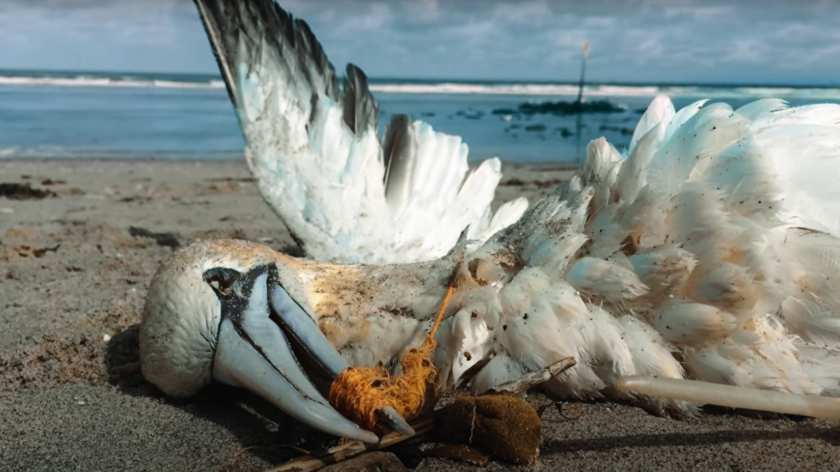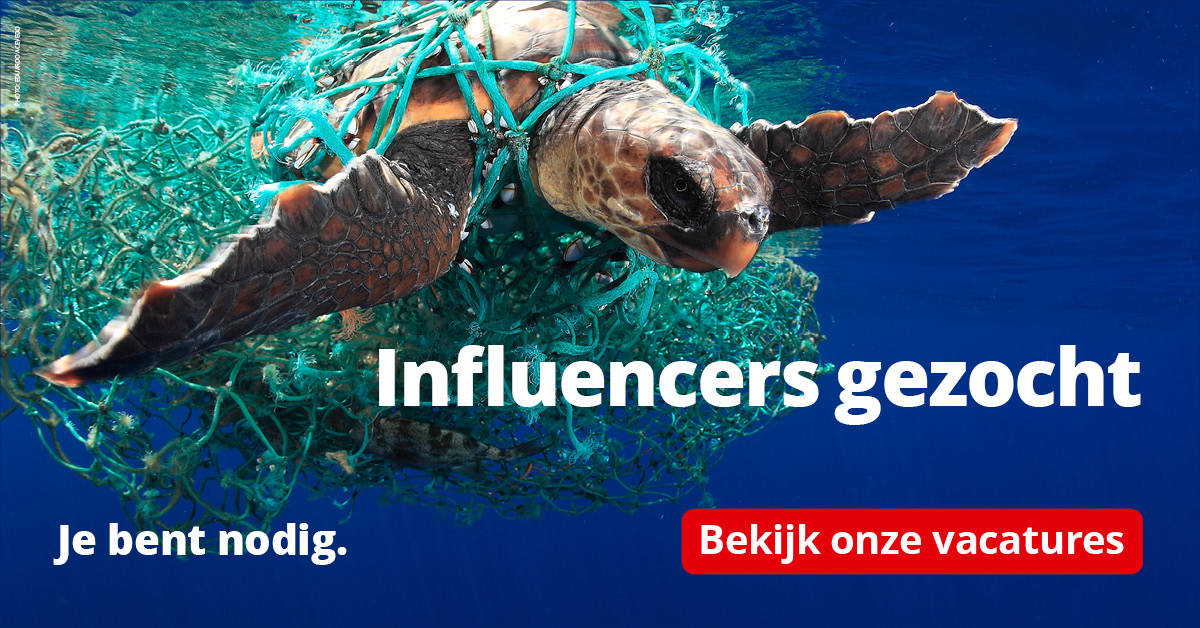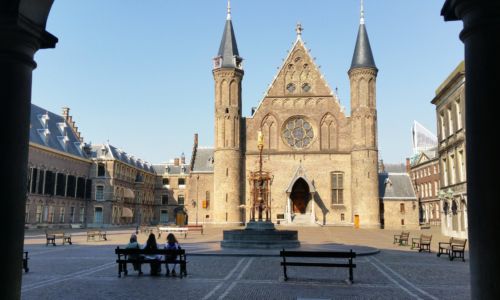Sustainability as a compulsory part of education: How will this affect students?
-
 A still from Radboud University's commercial, presented on Impact Day in 2021.
A still from Radboud University's commercial, presented on Impact Day in 2021.
Half a year ago, Radboud University took centre stage with its ‘Impact Day.’ The university used that day to shout from the rooftops that every student in Nijmegen would be educated on sustainability. Will the study programmes be reworked?
‘Sustainability mandatory subject for everyone at Radboud University’; the title of an article on the NOS website on November 18th of last year. ‘At Radboud University, sustainability will be a compulsory subject for every student’, according to Trouw that same day. Chair Daniël Wigboldus was given space in De Volkskrant to explain that Radboud University wouldn’t become ‘tree hugging’ (in Dutch: ‘geitenwollensok’) despite those ambitions.
The media blitz was coupled with a paid ad on national television. Pundits scrambled to shine a light on the campaign. Ministers in Parliament’s second chamber even raised critical questions. Taken all together, you would have had to be living under a rock to avoid Radboud University’s campaign.
Not New
However, the idea to make sustainability a permanent fixture of education at Radboud University is not a new one. The seed of the idea was planted years before. Carlijn Hendriks (coordinator of the Radboud Centre for Sustainability Challenges) and Marije Klomp (programme director of sustainability) presented a report in 2020 in which this idea took shape.
‘We do not want a compulsory subject on sustainability for all students; then it becomes a chore’
‘Because of corona we didn’t put much pressure behind it back then’, according to Klomp. Because of the lockdown, lecturers and students had plenty of other things on their minds at the time. ‘However, we didn’t want to leave this ambition without any obligation. That is why we put down 2025 as a goal.’ Every student graduating Radboud University around that year must have been educated on sustainability.
Confusion
The exact implementation was still unclear on Impact Day. ‘I’d like to briefly circle back to the header of that NOS article’, Klomp says. ‘It is incorrect. We do not want a compulsory subject on sustainability for all students; then it becomes a chore. We want to teach them how they can critically reflect on sustainability issues within their own areas of expertise. It needs to fit organically in the existing curriculum.’
Hendriks and Klomp are now deep in talks with lecturers and programme directors. A common early refrain in those talks is that the programmes are not very connected with sustainability. But Hendriks explains that that is because people often equate sustainability to climate issues. Or, for those who saw the university’s ad featuring a seahorse entangled in plastic, overconsumption and pollution.
But the university maintains a much broader definition of sustainability, based on the Sustainable Development Goals (SDGs) of the United Nations. These include counteracting poverty and inequality, as well as stimulating gender equality, good education, honest work and economic growth. Klomp: ‘Once we explain this, the programmes often realise that a lot of those subjects do come up in their education. Then we help them find even more connections.’
Sustainable Courses
But doesn’t the term ‘sustainability’ lose its meaning if it is connected to so many different subjects? After all, with a little creativity almost all education could be linked back to the SGDs. However, according to Carlijn Hendriks there is a very good reason for this approach. ‘Subjects such as poverty, health, equality and the environment are all strongly connected. Sustainability is so much more than climate and biodiversity.’
Radboud University’s website lists several ‘sustainable’ courses, divided by faculty. Students can go there if they are looking for more depth when it comes to questions of sustainability. It is also possible for students at the School of Management or the Faculty of Science to receive a sustainability testimony with their diplomas, provided they took several sustainable courses and incorporated this subject in their thesis research. The plan for the future is that students of other faculties will be able to obtain this testimony as well.
‘Every programme has something to contribute’
But the question remains: at what point will a course be considered sustainable? Hendriks: ‘The important part is that students will make a thorough analysis within the course of societal issues and potential avenues for solutions.’ Hendriks explains that a lot of courses don’t make the cut if you look at it that way. ‘Take Biodiversity for instance, a first-year biology course. In this course students learn how to classify plants and arthropods. While that is a useful skill, the course will not be placed on the list.’
Festival
The university will be hosting the Radboud Impact Festival from May 16th through May 20th. The programme is filled with various lectures, workshops and other activities on sustainability. While the Impact Day with its ad and media attention was mainly focused on external communication, the Impact Festival will be focused on the university’s own students and employees.
Improving Visibility
The testimony and the sustainable courses contribute to what Klomp and Hendriks consider one of their most important tasks: improving the visibility of existing education on sustainability. A lot of programmes don’t need a new curriculum, but it does need to be clearer that sustainability is a key theme of said programmes.
The university has set high expectations with its campaign, and now those need to be met. Klomp: ‘it would be a shame if, after four years of studying, students do realise how they can contribute to sustainable development. Every programme has something to contribute.’



